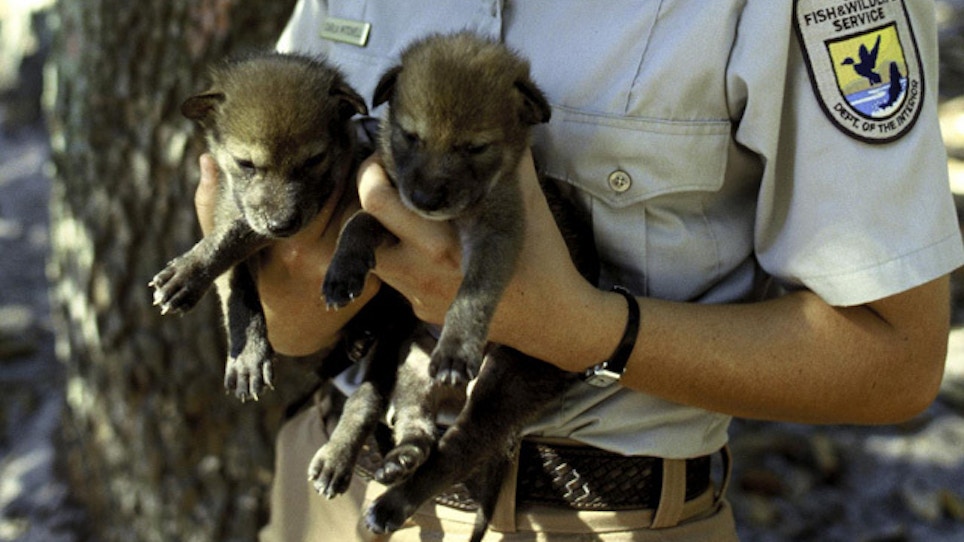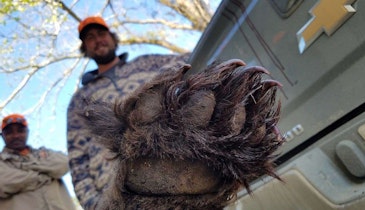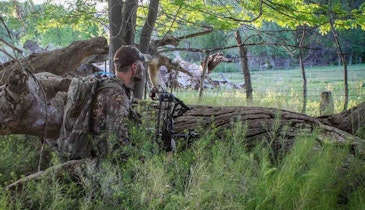By JONATHAN DREW | Associated Press
RALEIGH, N.C. (AP) — North Carolina wildlife officials are asking the federal government to declare red wolves extinct in the wild and end three decades of efforts to reintroduce the endangered species in the state.
The North Carolina Wildlife Resources Commission adopted a resolution asking federal officials to end efforts to maintain the only wild population of the carnivore, according to a news release Friday. A second resolution asks the United States Fish and Wildlife Service to remove red wolves from private land.
The resolutions ask the federal government to “declare in federal rules that the red wolf is extinct in the wild in North Carolina” and to terminate the reintroduction program.
The move comes as federal officials consider whether to continue the effort in North Carolina, with a decision expected by sometime in March.
The executive director of the state commission, Gordon Myers, said the impetus for the resolutions was an independent review that found flaws in the program.
“The response in this evaluation really highlights the lack of viability of the program,” he said.
Tom MacKenzie, a spokesman for the U.S. Fish and Wildlife Service, said the agency received the resolutions Friday and was taking them seriously.
“We'd be looking at all the options on how we'd be handling the red wolves,” he said. “Obviously continuing the status quo is not one. So to what degree it would be modified or terminated is what we're looking at right now.”
The board's resolutions angered groups that took the state to court for stricter rules for hunting coyotes, which look similar to the wolves. The board approved rules Thursday restricting coyote hunting to daytime in counties where the wolves live as part of the settlement.
“This recovery program has been working exceptionally well since the late 1980s, and has only been hindered by the NCWRC's blatant encouragement of coyote killing during the day and night in the five counties where the red wolves live,” said Tara Zuardo, an attorney with the Animal Welfare Institute.
Sierra Weaver, an attorney for the Southern Environmental Law Center, said the state board was doing a poor job of stewarding natural resources and questioned the legal basis for the resolutions.
“There is nothing in the Endangered Species Act that limits red wolf recovery to federal lands,” she said.
Myers said federal rules governing the program said the wolves would be managed on federal land, but many of the wolves are living on private land.
Once common in the Southeast, the red wolf was considered extinct in the wild as of 1980 because of factors including hunting and habitat loss. In 1987, wildlife officials released red wolves bred in captivity into the wild in North Carolina. About 100 now roam the wild, and about 200 are in captive breeding programs.
As part of their evaluation, federal officials commissioned an independent review in late 2014 that found flaws in the program, ranging from inadequate understanding of population trends to poor coordination with local managers. But the report also suggested that red wolves be reintroduced in additional areas.






